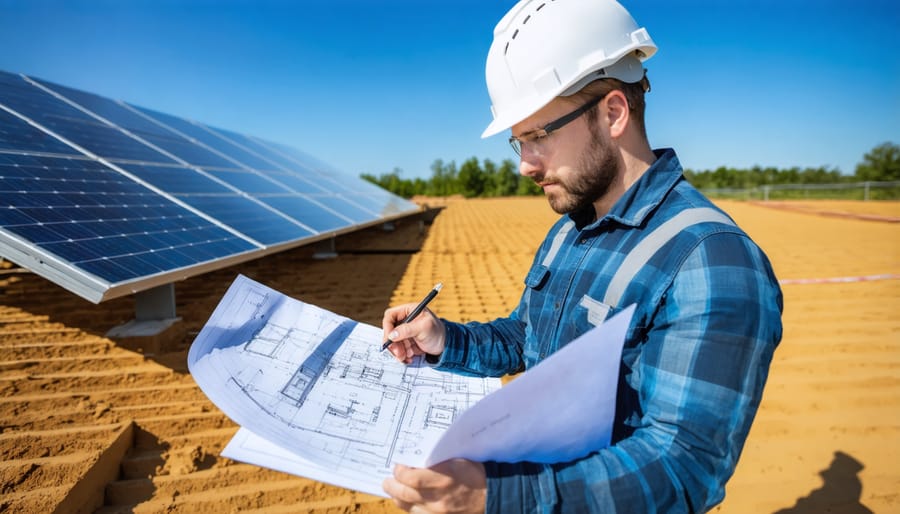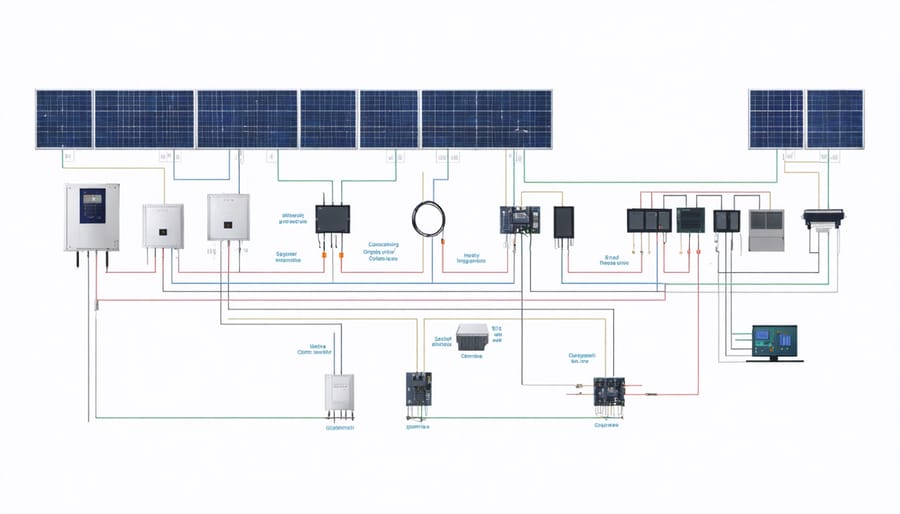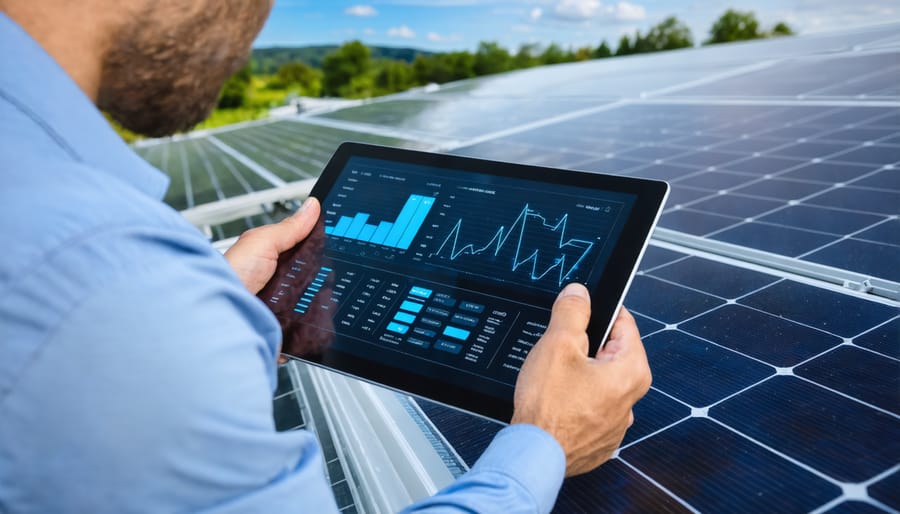Solar Integrators: The Master Orchestrators Behind Successful PV Projects

In the rapidly evolving solar energy landscape, photovoltaic integrators serve as the crucial bridge between innovative solar technology and successful implementation. These specialized companies orchestrate the entire solar installation process, from initial system design to final grid connection, ensuring seamless integration of photovoltaic solutions for homes, businesses, and industrial facilities across Europe. Acting as master conductors, integrators combine technical expertise with project management excellence to transform complex solar installations into efficient, reliable energy systems. Their comprehensive approach encompasses system engineering, component selection, compliance management, and performance optimization, making them indispensable partners in the renewable energy transition. By coordinating multiple stakeholders, managing regulatory requirements, and delivering turnkey solar solutions, integrators significantly reduce the complexity and risk associated with photovoltaic projects while maximizing return on investment for their clients.
What Exactly Is a Solar Integrator?

Key Responsibilities of Solar Integrators
Solar integrators shoulder a diverse range of responsibilities that are crucial for successful photovoltaic system implementation. At the core of their role lies system design and engineering, where they create customised solar solutions that align with specific site conditions, energy requirements, and local regulations.
Project management forms a significant part of their duties, encompassing timeline coordination, resource allocation, and stakeholder communication. They oversee everything from initial site assessments to final system commissioning, ensuring smooth workflow between different project phases.
Technical coordination is another vital aspect, where integrators work closely with equipment suppliers, installation teams, and electrical contractors. They ensure all components are compatible, meet quality standards, and operate efficiently as a complete system.
Integrators also handle critical documentation and compliance requirements, including securing necessary permits, arranging grid connection agreements, and ensuring adherence to European energy standards and local building codes.
Quality assurance and testing responsibilities involve conducting thorough system checks, performance monitoring, and implementing safety protocols. They’re also responsible for coordinating maintenance schedules and providing after-installation support.
Importantly, integrators serve as technical advisors, helping clients understand their solar investment, expected energy yields, and system operation. They provide detailed analysis of energy production estimates, financial returns, and potential incentive schemes available in different European regions.
Technical Integration Expertise
Hardware Integration
In the photovoltaic sector, hardware integration requires precise coordination of multiple system components to create efficient and reliable solar installations. A solar integrator carefully selects and combines compatible solar panels, inverters, mounting systems, and monitoring equipment while ensuring optimal performance and longevity. They evaluate factors such as panel efficiency ratings, inverter specifications, and structural requirements to create a cohesive system.
The integrator’s expertise extends to understanding the interaction between different manufacturers’ components and their compatibility with local grid requirements and building specifications. They assess factors like voltage compatibility, power optimization, and safety requirements while considering future maintenance needs and potential system upgrades.
Physical integration also involves careful attention to cable management, weatherproofing, and structural integrity. Integrators ensure proper spacing between panels for ventilation, appropriate tilt angles for maximum energy yield, and secure mounting that protects both the solar equipment and the building structure. This comprehensive approach to hardware integration results in systems that not only perform efficiently but also maintain their reliability throughout their operational lifetime.

Software and Monitoring Systems
Modern integrators leverage advanced software solutions and solar monitoring systems to optimize photovoltaic installations and ensure peak performance. These digital tools enable real-time tracking of energy production, system health, and efficiency metrics across entire solar arrays.
Integrators implement sophisticated monitoring platforms that provide detailed analytics, predictive maintenance alerts, and performance optimization recommendations. These systems help identify potential issues before they impact energy generation, ensuring maximum return on investment for system owners.
The software suite typically includes design tools for system planning, simulation software for accurate energy yield predictions, and comprehensive asset management platforms. Through mobile apps and web portals, clients can access their system’s performance data, energy production statistics, and environmental impact metrics.
By combining technical expertise with digital innovation, integrators deliver smart solar solutions that maximize system efficiency while providing transparency and control to system owners. This digital integration aspect has become increasingly crucial in modern solar installations, particularly in the European market where smart energy management is a priority.
Project Management Excellence

Stakeholder Management
In the photovoltaic sector, successful integrators excel at managing stakeholder relationships throughout the project lifecycle. They coordinate effectively between property owners, equipment manufacturers, installers, utility companies, and local authorities to ensure smooth project execution. Acting as a central point of contact, integrators facilitate clear communication channels, resolve potential conflicts, and align diverse stakeholder interests towards project goals.
Their expertise includes navigating regulatory requirements, securing necessary permits, and ensuring compliance with local grid connection standards. They maintain transparent dialogue with financial institutions, insurance providers, and maintenance teams to establish long-term project viability. Through careful documentation and regular progress updates, integrators keep all parties informed and engaged, fostering trust and collaboration essential for project success in the European solar market.
Quality Assurance
Quality assurance forms a crucial cornerstone of a photovoltaic integrator’s responsibilities. These professionals implement rigorous testing protocols and performance monitoring systems to ensure solar installations meet both European and international standards. They conduct thorough pre-installation assessments, oversee equipment certification compliance, and perform detailed quality checks throughout the implementation process.
Integrators utilize specialized monitoring tools to track system performance, ensuring optimal energy generation and early detection of potential issues. They follow strict documentation procedures and maintain detailed records of system specifications, performance metrics, and maintenance schedules. Regular system audits and performance reviews are conducted to verify that installations continue to meet efficiency targets and safety requirements.
By maintaining these high-quality standards, integrators protect their clients’ investments and ensure long-term system reliability. They also coordinate with certification bodies and local authorities to ensure all installations comply with regional regulations and industry best practices, providing peace of mind to system owners.
Solar integrators play a pivotal role in transforming solar energy aspirations into successful, operational systems. By serving as the essential bridge between manufacturers, installers, and end-users, integrators ensure that solar projects are executed efficiently, safely, and in compliance with European standards. Their comprehensive project management approach, technical expertise, and ability to coordinate multiple stakeholders have become increasingly valuable as solar adoption continues to grow across Europe.
The impact of professional integrators extends beyond mere installation coordination. They contribute significantly to the overall sustainability goals of the continent by ensuring optimal system performance, reducing implementation risks, and maximizing return on investment for solar projects of all sizes. Their expertise in navigating complex regulations, securing appropriate components, and managing technical challenges has proven instrumental in accelerating the adoption of solar energy solutions.
As the renewable energy sector evolves, integrators will continue to be vital partners in achieving Europe’s clean energy objectives, making solar power more accessible and reliable for homeowners, businesses, and industries alike. Their role as comprehensive solution providers ensures that solar implementations deliver long-term value while supporting the transition to a more sustainable energy future.
Leave a Reply